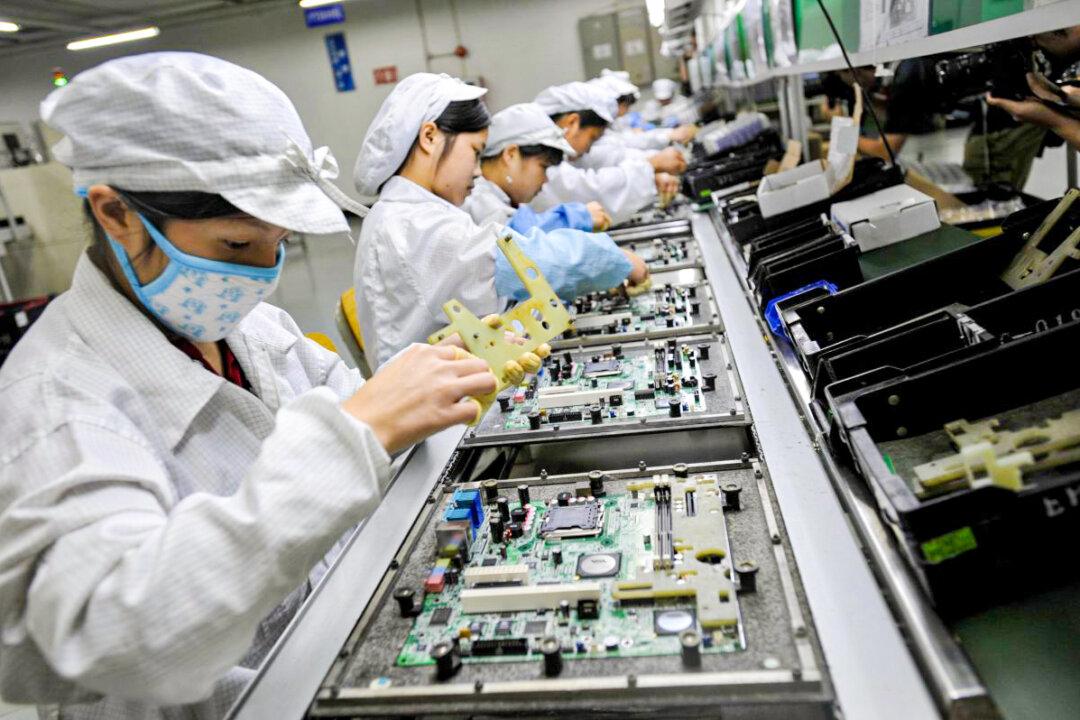Taiwan’s Foxconn Technology Group, the world’s largest electronics manufacturer and Apple’s main supplier, has again suspended operations at two of its factories in Kunshan, China, after the Chinese Communist Party (CCP) implemented strict quarantine rules in parts of the country to combat the spread of the Omicron variant of the virus in March.
On April 22, Kunshan reported 23 new CCP virus cases, up from single digits the week before.





